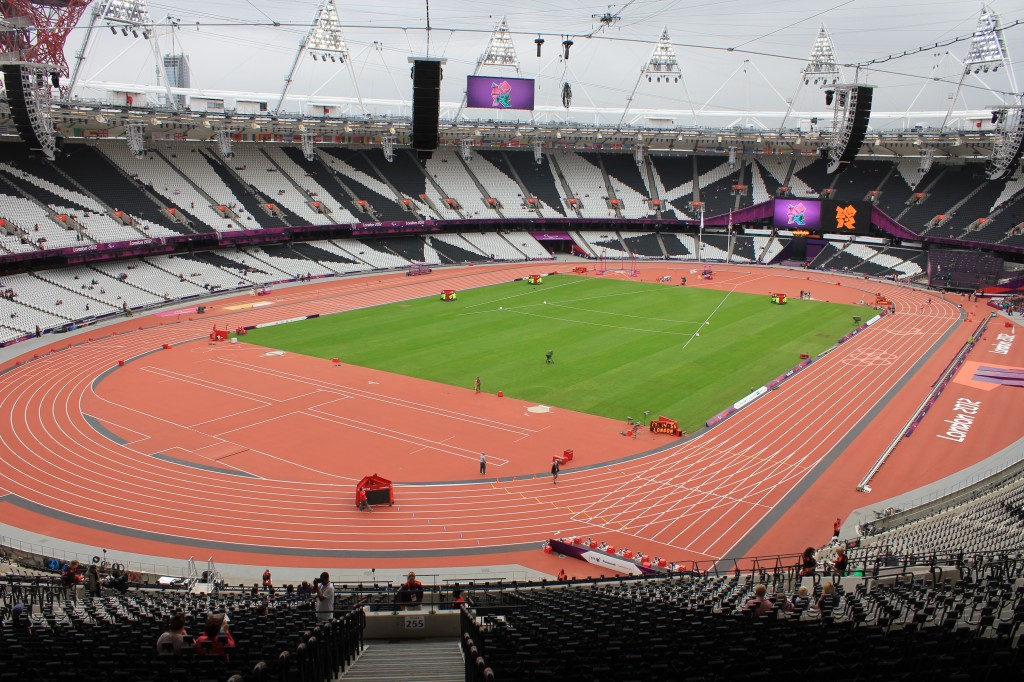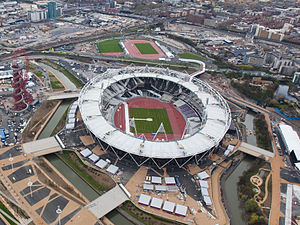
Olympic Village Proposal released last year by The Olympic Delivery Authority
The redevelopment of the Olympic park has now started. The arenas are being reduced in size, to become more suitable for national events, and the temporary venues are being recycled, for example the Aquatic Centre’s stands are being send to a racetrack in Miami. All this to avoid the relics of the Olympics costing more than they are worth.
The plan for the centre piece of the park, the 80,000-capacity Olympic stadium, is still undecided. A decision is to be made in March but the favourite bidders to move in to the stadium on a full-time basis is Premier league football club West Ham United. This summer though, whatever the decision is, the stadium will host a series of concerts, the anniversary of the Opening Ceremony and the London Grand Prix athletics meeting. There is no talk about reducing the stadium in size at this moment.
The competitors rooms in the Athletes Village are being transformed into “luxury”- do developers build any other kind- flats with the first of the 2,818 tenants moving in later this year. They will also build new flats, houses and at least three schools for the new residents. Within 20 years the plan is that Queen Elizabeth Olympic park will be the home of 8,000 people, where a third are suppose to be “affordable” housing.
Interesting enough they mean that the new flats and houses are a boost for the city where rents are too high for many people to pay, but is luxurious flats and so called “affordable” housing really something a family with average or below-average wage can afford?
Dennis Hone, chief executive of the London Legacy Development Corporation, also insists that the new community will be vibrant and that there is no risk the neighbour will be empty most of the time, like the estates in the Olympic Park in Athens. Is it not a risk though, with another community in London for the wealthy, that the buyers will be rich people who lives abroad and only use the flat when they visit London? Is this really the way to make a community vibrant? Would it not be better to build houses and flats that “normal” Londoners can afford and not just people who have a lot of money?
Click London Olympics for more blogs
See our Olympics project pages for more information and videos.
Or visit PlanA our general blog on urbanism, planning and architecture.
Spectacle homepage
Like Spectacle Documentaries on Facebook
Follow SpectacleMedia on Twitter



